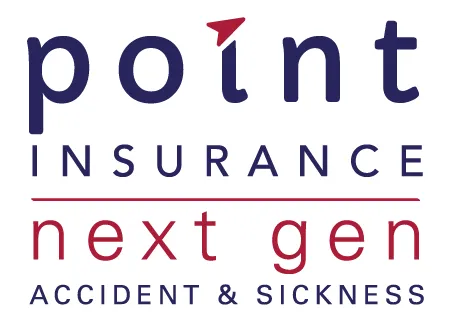Business insurance serves as a valuable safety net for operations all around the country. As such, whether you’re running a big business in Canberra or a small one in nearby Hall or Majura, it’s important to compare the wide range of insurance options at your disposal in the Australian Capital Territory, which you can do right here with Savvy.
Why compare business insurance policies through Savvy?
100% free service
There's no need for you to pay a cent to compare a variety of competitive policies side-by-side in one place.
Compare policies online
You can consider the inclusions, premiums, benefits and other key factors easily online, whether you're at home or on the go.
Trusted insurers
Considering offers from trusted providers can help give you peace of mind that you're comparing high-quality products.







We’ve partnered with BizCover to bring you a range of business insurance policies to help you compare them side by side.
What types of business insurance are available in the ACT?
It’s important to understand the differences between the array of business insurance policies available in Australia, which offer cover in diverse areas (subject to insurer qualification criteria). These include:
Public liability insurance
Public liability insurance can cover your business if a member of the public is injured or their property is damaged as a result of your business activity, subject to the terms and qualification criteria set by your insurer. In terms of the available covered amount under this type of policy, you can typically choose between $5 million, $10 million, $20 million or a larger sum by individual negotiation with certain insurers.
What it covers:
- Third-party personal injury claims
- Third-party property damage claims
- The legal costs of defending yourself
Product liability insurance
Product liability insurance may be able to offer your business protection against claims a product you supplied, whether manufactured by you or imported and sold, caused harm to a third party or damaged their property. The claim limits under this type of policy can also range from $5 million to $20 million.
What it covers:
- Claims that a product you supplied caused sickness or injury
- Third-party property damage claims
- Legal fees to defend yourself against such claims
Professional indemnity insurance
Professional indemnity insurance can offer cover against claims the advice you gave or service you provided was negligent, sub-standard or caused loss or harm. It may also cover circumstances such as mistakes, incorrect diagnoses, miscalculations and breach of duty. Cover can start at $250,000 and may go up to $10 million (though more may be available by individual negotiation with some insurers).
What it covers:
- Payment of compensation
- Payment of damages
- Legal defence costs
- Cost of defending yourself during investigations
General business insurance
General business insurance, or general liability insurance, is an insurance package which can offer coverage against other risks, such as those facing your physical business premises and assets.
What it covers:
- Fires, storms, water damage
- Explosions and impacts
- Accidental damage
- Theft following forceable entry into a locked building
- Theft of equipment which is securely attached to a vehicle
Because this is an insurance package, you may also be able to include such policies as public liability and professional indemnity cover, as well as some of the following:
- Commercial property insurance (which may offer a higher level of protection for your business premises)
- Glass breakage (which is a common business insurance exclusion)
- Business interruption (which can cover your bills if you have to close your business while recovering from an insured event)
- Cyber liability insurance (which can protect you from many forms of cybercrime)
- Tax audit (which can cover some of your costs if you’re subject to an ATO audit)
- Management liability (which can offer cover to business owners and directors against claims of mismanagement)
Accident and sickness insurance
Accident and sickness insurance can cover self-employed individuals who are injured or suffer an illness which prevents them from working and earning a living. This is delivered in the form of an ongoing benefit, which may be valued at up to 85% of your salary (depending on how much you earn and your insurer’s terms and conditions). This can be paid to you over a benefit period of your choosing, typically either a maximum of one or two years, while the waiting period which applies varies from seven to 28 days.
What it covers:
- Loss of income as a result of illness
- Loss of income as a result of an accident
- Optional extras including death and disablement benefits
What isn’t covered by business insurance in the ACT?
There are several common exclusions which may apply to business insurance policies. These may include:
- Unlawful activity
- Criminal negligence
- Intentional damage or reckless behaviour
- Flood damage
- Asbestos-related incidents
- The effects of pollution
- Incidents which happened before or after your cover period
- Prior or existing risks which were not declared at the time the policy was taken out
How much will insurance cost for my ACT business?
There are several variables which insurers will account for when determining how much your premiums will cost, including the following:
- The industry you’re in
- Your business location (such as whether you need business insurance in Canberra or for a more rural business)
- The structure of your business
- Your business size and turnover (whether you’re insuring a large or small business)
- The number of employees you have (if any)
- Your insurance history and whether you’ve made any recent claims
Your business’ industry will form one of the key factors in determining the cost of your policy. For example, because of the different risks faced in the respective industries, the cost of professional indemnity insurance for a real estate agent is likely to be far greater than that of an IT professional.
How do I compare business insurance in the ACT with Savvy?
There are many areas you should consider when comparing business insurance policies, whether in the ACT or anywhere else in Australia. These can include:
- Inclusions: there’s little point in buying insurance if the policy you’re looking for doesn’t offer what you need in the areas you need it, so the listed inclusions are important to consider.
- Exclusions: when comparing policies, it’s crucial to always check whether there are any areas lacking coverage which are considered important to your business.
- Payout limits: different policies will offer different covered amounts, so it’s important to look for offers which can provide the level of cover you’re looking for.
- Excesses: you may have to pay an excess upon making a claim, so think about how much you’d like to pay and determine which insurers can accommodate your preferences.
- Cost: by comparing the cost of equivalent policies, you can work out what the most affordable options for your business are which can also provide the protection you’re looking for.
You can compare business insurance policy offers from a panel of trusted providers in one place with Savvy. By listing the available offers from this panel side-by-side, you can compare the factors listed above more effectively, helping you determine which is the best option for your needs from the panel, and complete your purchase conveniently online.
Who may need business insurance in ACT?
Business insurance is highly beneficial in a range of areas. Not only can it offer financial protection to businesses against different unexpected events which could otherwise set them back a significant amount of money, but also provide greater peace of mind to owners and operators that they can reclaim part of or all any out-of-pocket expenses which qualify for coverage. Some of the businesses which may look to take out insurance include:
- Anyone in finance, mortgage broking or accountancy professions
- Professionals such as engineers, architects and consultants
- Tradies, such as electricians and plumbers
- Health professionals, such as doctors and nurses
- Allied health professionals, such as physiotherapists and occupational therapists
- Retail businesses, including online and mobile companies
- Food businesses, cafes and restaurants
- Cleaners and cleaning staff
- Photographers, graphic designers and artists and IT consultants













